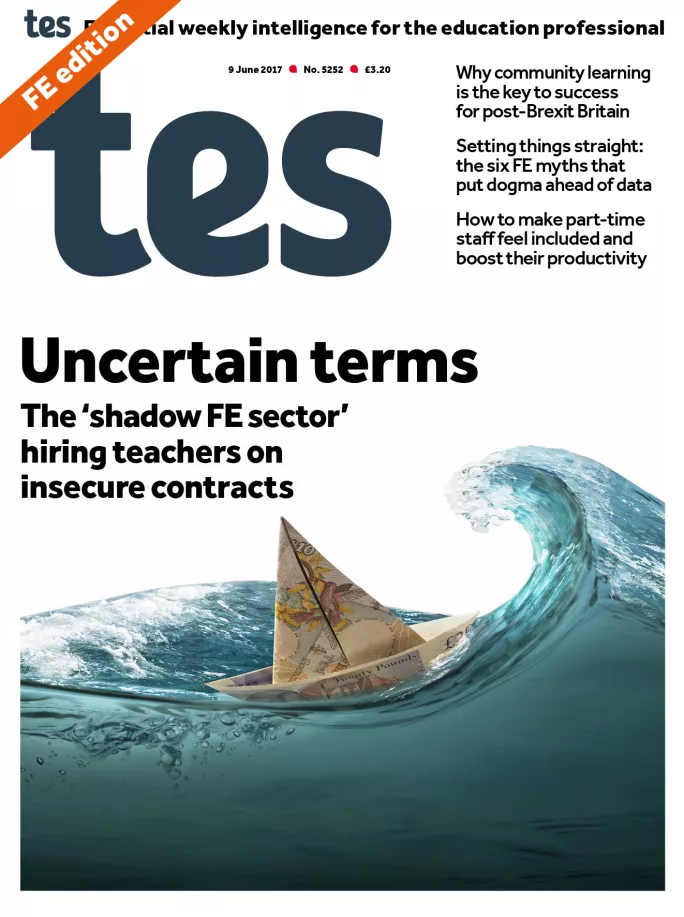In today’s Tes Further, Anthony Harmer, chief executive of ELATT Connected Learning in London, tries to imagine what the country will look like in 2018. He says that two great challenges face the country - addressing the skills gap and ensuring that tolerance and diversity flourish. These, he believes, can be tackled through community learning, and by helping people of all backgrounds integrate into society.
“I’m convinced that social integration is fundamental to improving our society,” Harmer writes. “Genuine community and workplace diversity combats negative stereotypes and builds social cohesion.”
Ofsted: requires improvement
Does Ofsted require improvement? According to Andy Forbes, principal and CEO of the Colleges of Haringey, Enfield and North East London, it does. But in order to do that, Ofsted must revert to inspecting subject teaching in colleges, and “introduce a system of agreeing with FE corporations whether it would make more sense to inspect colleges independently or as groups of colleges”. The Tes columnist also says that the inspectorate needs to stop using “English and maths outcomes as a measure of how well colleges are doing”.
FErret
FErret has decided to go on a trip to jolly Scotland this week. With a deep-fried Mars Bar in paw and an umbrella stowed under his arm, he embarks on a quest to examine how the return to national bargaining is going. If you didn’t know, Scotland decided to readopt negotiating pay and conditions at a national level after 20 years of local bargaining. But FErret can reveal that things have not been plain sailing since, with national strike action and “an atmosphere so tense that it could be cut with a knife”. He just hopes that his summer holidays won’t be somewhere equally as stormy as the situation beyond Hadrian’s Wall.
Pack mentality
Tes columnist Sarah Simons offers her top tips for colleges on how to help make part-time teachers feel more part of the college family. She writes that making staff feel like they belong “is not just good manners, it’s good business”. And with 50 per cent of the workforce in general FE working on part-time contracts, even the smallest of gestures from college management can make staff feel part of the pack.
Mythbusters
Peter Urwin, director of the Centre for Employment Research at the University of Westminster, reels through the series of false assumptions in FE that are now established as ‘fact’. These include statements such as “apprenticeships are the answer to problems of social mobility”, and “technical education has failed students”. He writes: “If our next government is to ensure policy-making is grounded in data rather than dogma, here are six myths that it would be well advised to steer clear of.”
The ‘shadow FE sector’
According to a new report by the University and College Union (UCU) more than 17,000 teaching staff in FE colleges were on an insecure contract in 2016 - 28 per cent of the teaching workforce. But the report also identifies something equally as sinister - a “shadow FE sector” of almost 60 subsidiary companies being used to hire staff to deliver college teaching on “inferior” and “precarious” contracts.
Insecure FE
Julia Belgutay, in her editorial, writes that although college leaders may not be able - or willing - to increase job security for all their staff, perhaps they should consider the consequences of not doing so. “In times of change and uncertainty, they ought to be mindful of the effect this could have on them,” she writes.
All this and much, much more in this week’s Tes Further.
Want to keep up with the latest education news and opinion? Follow TES FE News on Twitter, like us on Facebook and follow us on LinkedIn.












